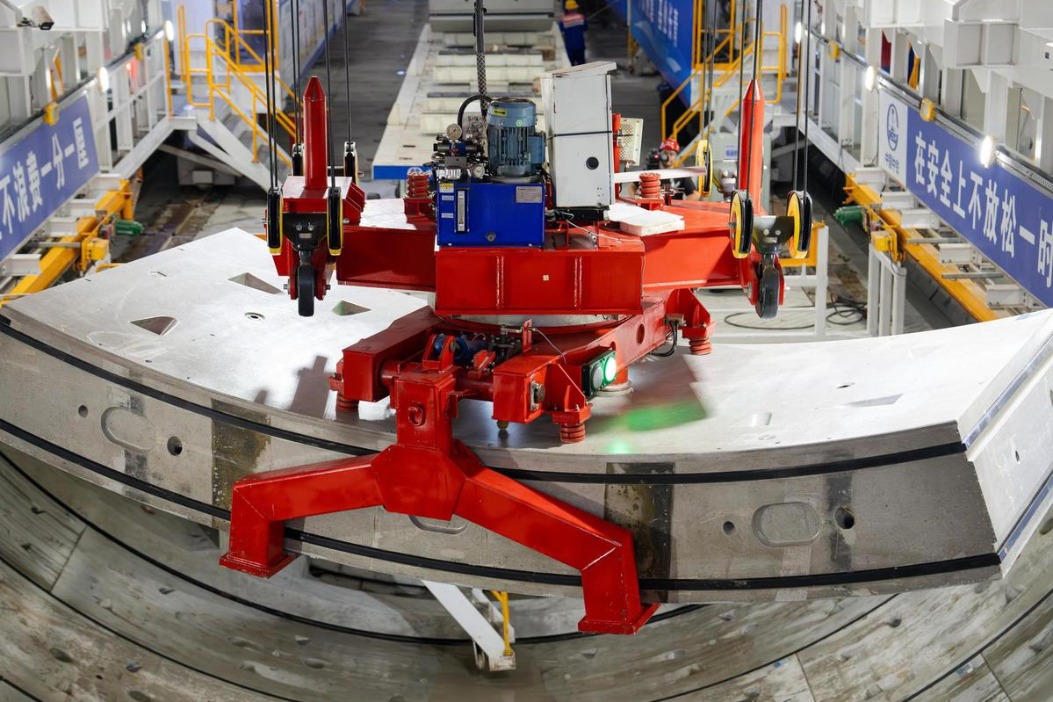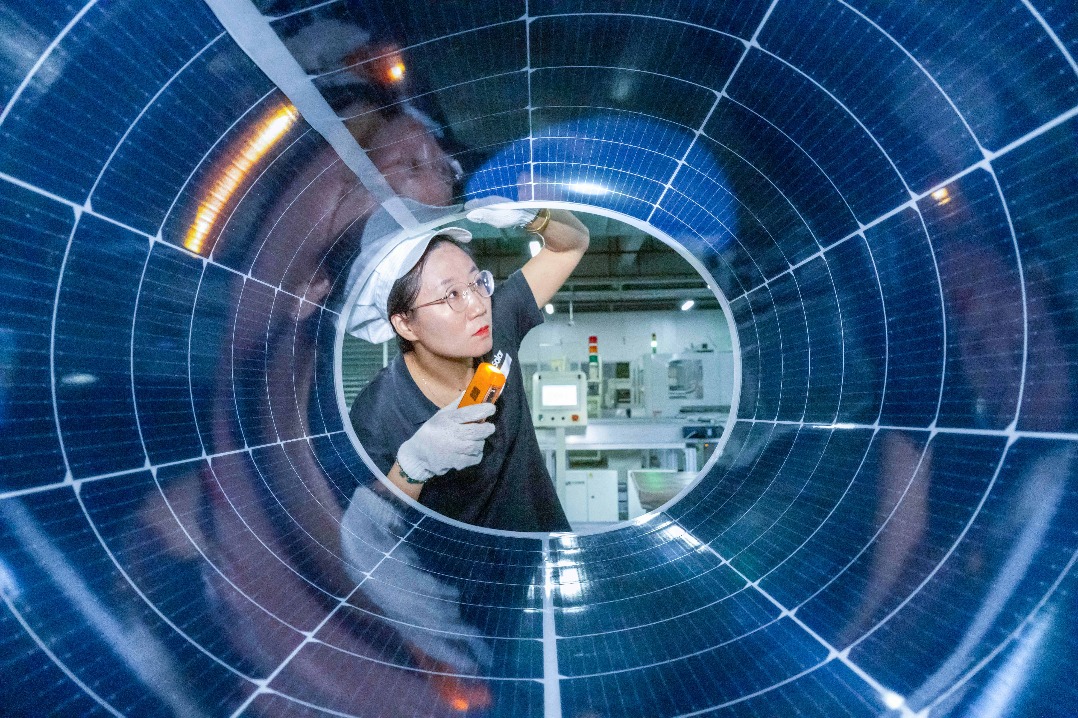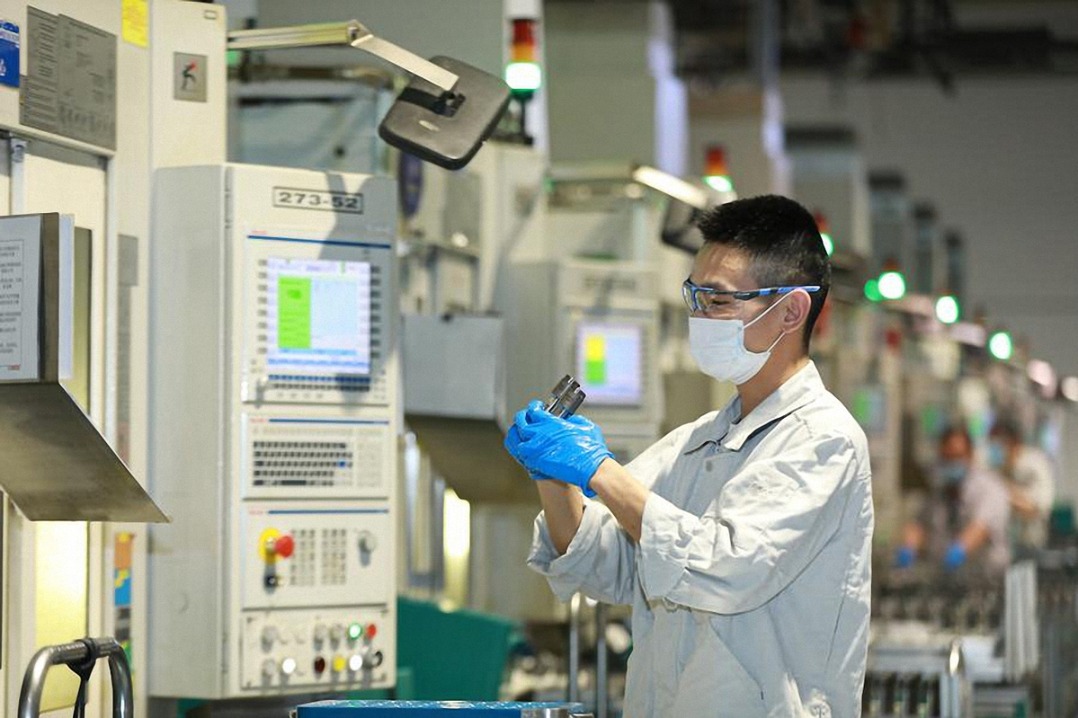Nation making great strides in green energy
Expert: Over past decade, global wind, solar power costs fell 60-80%;China main factor


China's advanced new energy technology and well-developed industrial chain have played a key role in supporting the global shift toward green and low-carbon energy, said industry experts and company executives.
China has made significant progress in enhancing its new energy technology, including the record conversion efficiency of high-efficiency crystalline silicon and the world's largest capacity of offshore wind turbines, which has significantly contributed to reducing costs and facilitated the world's green energy transition, they say.
"China has developed a complete wind and photovoltaic industry chain, from research and development to design and integrated manufacturing systems," said Zhang Mianrong, chairman of the Energy Development Research Institute under the China Southern Power Grid Co Ltd.
"Over the past decade, global wind and solar power costs have decreased by 60 to 80 percent, with China contributing the majority of this reduction," Zhang said during the 2024 Tongzhou Global Development Forum held in Beijing on Oct 19.
"As the global leader in renewables development, China has been engaged in new energy and hydropower-related cooperation with over 100 countries and regions to meet local demand. Last year alone, the country saw its exports of wind and photovoltaic products help other countries reduce carbon emissions by 810 million metric tons."
China has made significant strides in recent years in advancing renewable energy technologies from wind power capacity to solar cell efficiency, emerging as a global leader in the field, he added.
An international team led by scientists from the Institute of Chemistry under the Chinese Academy of Sciences recently developed a new type of high-efficiency solar cell capable of achieving a photoelectric conversion efficiency of 26.4 percent, the highest efficiency for such solar cells to date.
Compared with the current widely used crystalline silicon solar cells, perovskite-organic tandem solar cells offer advantages such as ease of preparation, lightness and the ability to be fabricated into flexible devices. They also present wide application prospects in areas from portable energy to building-integrated photovoltaics, said Li Yongfang, an academician and a researcher at the institute, who is involved with the development.
On the other hand, the world's most powerful floating offshore wind turbine, independently developed by China with a generating capacity of 20 megawatts, recently rolled off the production line in Yancheng, East China's Jiangsu province. It features a wind wheel with a diameter of 260 meters and a swept area of 53,100 square meters, and can generate 62 million kilowatt-hours of electricity annually, enough to power about 37,000 households, saving 25,000 tons of coal while cutting carbon dioxide emissions by 62,000 tons.
Through these advancements, China is transforming its energy landscape while further cementing its position as the global leader in renewables development, with new energy installed capacity expanding at a rapid pace in recent years, which in turn becomes a driving force for green and low-carbon energy transition, said Zhang.




































